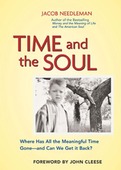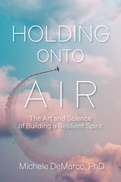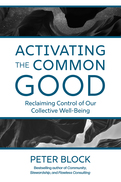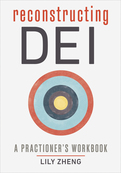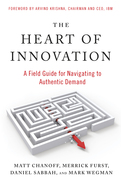
Download PDF Excerpt
Rights Information
Time and the Soul
Where Has All the Meaningful Time Gone-and Can We Get It Back?
Jacob Needleman (Author)
Publication date: 05/10/2003
Nearly everyone feels stress and anxiety over what's become known as time poverty. "Time management" techniques treat these symptoms by making our busyness more efficient, but not the underlying cause. Needleman shows that we can get more out of time by breaking free of our illusions about it. He helps us experience time more purposefully and meaningfully. He provides parables, reflections, and a unique mental exercise to give us a new understanding of time. By transforming the way we understand and experience time, this powerful book gives us the equanimity and perspective we need to make the most of the time we are given. "A tranquil heart," Needleman writes,"is never defeated by time."
- By the bestselling author of Money and the Meaning of Life
- The first paperback edition of a Needleman classic, with a new introduction by the author and a new foreword by John Cleese
- Offers a bold and iconoclastic alternative to using traditional "time management" approaches to reclaim our time
- Uses examples from the great wisdom teachings to show how to recover the fullness of meaningful time in the conditions of the modern world
Find out more about our Bulk Buyer Program
- 10-49: 20% discount
- 50-99: 35% discount
- 100-999: 38% discount
- 1000-1999: 40% discount
- 2000+ Contact Leslie Davis ( [email protected] )
Nearly everyone feels stress and anxiety over what's become known as time poverty. "Time management" techniques treat these symptoms by making our busyness more efficient, but not the underlying cause. Needleman shows that we can get more out of time by breaking free of our illusions about it. He helps us experience time more purposefully and meaningfully. He provides parables, reflections, and a unique mental exercise to give us a new understanding of time. By transforming the way we understand and experience time, this powerful book gives us the equanimity and perspective we need to make the most of the time we are given. "A tranquil heart," Needleman writes,"is never defeated by time."
- By the bestselling author of Money and the Meaning of Life
- The first paperback edition of a Needleman classic, with a new introduction by the author and a new foreword by John Cleese
- Offers a bold and iconoclastic alternative to using traditional "time management" approaches to reclaim our time
- Uses examples from the great wisdom teachings to show how to recover the fullness of meaningful time in the conditions of the modern world
Jacob Needleman is Professor of Philosophy at San Francisco State University, former visiting professor at Duxx Graduate School of Business Leadership in Monterrey, Mexico, and former Director of the Center for the Study of New Religions at the Graduate Theological Union in Berkeley, California. He has also been featured on Bill MoyersÆ acclaimed PBS series, ôA World of Ideas.ö He is the author of numerous books, including Money and the Meaning of Life, A Little Book on Love, and The American Soul: Rediscovering the Wisdom of the Founders.
Introduction to the Paperback Edition
Prologue
PART I: Once Upon a Time
CHAPTER 1: The Man with the Soft Brown Eyes
CHAPTER 2: Time: A New Question
CHAPTER 3: Time: Problem, Question and Mystery
CHAPTER 4: Time and the Great Self The Dejection of Arjuna
PART II: Real Time
CHAPTER 5: From Fiction to Reality The Time Famine
CHAPTER 6: What to Do?
CHAPTER 7: A Modest Exercise
CHAPTER 8: The Other Door
CONCLUSION: “You've Only Just Begun”
References
Further Reading
Index
About the Author
INTRODUCTION
TO THE PAPERBACK EDITION
The world is too much with us; late and soon, Getting and spending, we lay waste our powers . . .
1
—William Wordsworth
The question of our relationship to time is both a mystery and a problem. It calls to us from the deepest recesses of the human heart. And it bedevils us on all the surfaces of our everyday life. At the deeper levels, in front of the mystery of time, we are mortal beings solemnly aware of our finitude—longing, perhaps, for that in ourselves which partakes of the eternal. But at the surface levels of ourselves, in front of the problem of time, we are like frantic puppets trying to manage the influences of the past, the threats and promises of the future and the tense demands of the ever-diminishing present moment. The mystery of time has the power to call us quietly back to ourselves and toward our essential freedom and humanness. The problem of time, on the other hand, agitates us and “lays waste our powers.”
2
In 1997, when this book was first published, the uniquely modern form of the problem of time—the astonishing fact that the conditions of contemporary life are bleeding meaningful time out of our lives—had already begun to assume epidemic proportions. Almost all of us—including even young children—were being afflicted by this new poverty, this time-poverty. Awash in material goods, awash in new and ingenious forms of money and their ever-darkening shadow of debt, whipped faster and faster by advancing technology—and all the while telling ourselves we were better off than ever before—we began to realize, dimly at first, that we were no longer living our lives. We began to see that our lives were living us. And we began to suspect that our relationship to time had become so toxic precisely because we had forgotten how to bring to our day-to-day lives the essential question of who and what a human being is and is meant to be. We had lost touch with the mystery of time—that is to say, the mystery of our humanness, our being, our life and death.
3
This edition seeks to explore what it means to allow the mystery of time to irrigate our parched and driven lives. My fundamental premise is that the pathology of our relationship to time can be healed only as we allow ourselves to be penetrated by the mystery of what we are beneath the surface of ourselves—by striving, that is, to remember our Selves. Both the content and the form of this book have been shaped by this intention and premise.
How is it that as we grow older time passes through our hands more and more rapidly? Who among us doesn’t now and again longingly recall some sweet passages of time when we were young children—the huge days and weeks of a summer, perhaps, or simply idle hours happily “doing nothing”? This sense that time is passing more and more quickly is, of course, a common human experience. But it may be that in our contemporary culture the speeding up—and, hence, the vanishing—of time has assumed uniquely frightening proportions. How often it happens that we come to the end of a day or a week or a month shaken by the realization of how quickly it is all going by! With a troubled, backward glance we wonder to ourselves: “Where was I?”
It is a very telling question and a very accurate clue to the problem of time in our personal lives—and in the life of the modern world. Where was I? Where am I? In fact, I was not there, I am not present in my life; I do not inhabit my life. And one can imagine the chilling prospect even of coming to the end of one’s days with the same bewildered, anguished cry: “Where was I?” Is my whole life somehow passing by without me? That is surely what it means to say that meaningful time is disappearing from our lives.
4
We may say we wish for more time, for longer life, but this specific problem of the disappearance of meaningful time cannot be solved by having more time in a quantitative sense. A man or woman could live a hundred years, a thousand years, but if he or she was not there, not present in his or her life, it would come to the same thing at the end: “Where was I?”
It is precisely this question and this problem that has by now burrowed into the core of our whole civilization. The current of change in world affairs, in the patterns and mores of human culture, in the march of history and even in the biological and geological processes of planet earth seems to be accelerating in ways that are equally bewildering—when they are not absolutely terrifying. The boundaries and leadership of nations and governments seem more and more fragile, in many regions rapidly falling and rising and falling again under who knows what influences and causes. In the sciences hardly a day goes by without fundamental assumptions about the natural world or the human body being challenged by one “breakthrough” after another, resulting in a disordered mix of hope, disappointment and pervasive moral confusion. And as for the practical applications of modern science, it is no exaggeration to say that the continuously accelerating influence of advanced technology is more and more rapidly changing nearly every pattern of human conduct in nearly every corner of the world and within nearly every culture and every tradition of the world: in family relations, in sexual morality, in the meaning and nature of work, in business, in religion, in the arts, in the nature of childhood and the instruments of education, in the self-concept and despair of the rising generation, in the meaning of love—the list is endless. There is absolutely no corner or pocket of human life that is not changing with such acceleration as to induce a helpless numbing of our sensibilities—or else an agitated and often divisive, piecemeal activism that remains equally helpless, beating out small fires while behind our backs an inferno of ever-accelerating change throws its thousand sparks over the whole of the world and the whole of our common life.
5
But it is necessary to realize that technology itself is not the cause of our problem of time. Its influence on our lives is a result, not a cause—the result of an unseen accelerating process taking place in ourselves, in our inner being. Whether we point to the effect of communication technology (such as e-mail) with its tyranny of instant communication; or to the computerization, and therefore the mentalization of so many human activities that previously required at least some participation of our physical presence; or to any of the other innumerable transformations of human life that are being brought about by the new technologies, the essential element to recognize is how much of what we call “progress” is accompanied by and measured by the fact that human beings need less and less conscious attention to perform their activities and lead their lives. The real power of the faculty of attention, unknown to modern science, is one of the indispensable and most central measures of humanness—of the being of a man or a woman—and has been so understood, in many forms and symbols, at the heart of all the great spiritual teachings of the world. The effects of advancing technology, for all the material promise they offer the world (along with the dangers, of course) is but the most recent wave in a civilization that, without recognizing what it was doing, has placed the satisfaction of desire above the cultivation of being. The deep meaning of many rules of conduct and moral principles of the past— so many of which have been abandoned without our understanding their real roots in human nature— involved the cultivation and development of the uniquely human power of attention, its action in the body, heart and mind of man. To be present, truly present, is to have conscious attention. This capacity is the key to what it means to be human.
6
It is not, therefore, the rapidity of change as such that is the source of our problem of time. It is the metaphysical fact that the being of man is diminishing. In the world as in oneself, time is vanishing because we have lost the practice of consciously inhabiting our life, the practice of bringing conscious attention to ourselves as we go about our lives. All clichés about “be here, now” aside, the fundamental fact is that, in ways we cannot imagine, the key to living the values we prize—freedom, moral will, com- passion, common sense and far-seeing wisdom—depend on the exercise and development of the uniquely human capacity to free our attention from its “capture” by the impulses of the body and the imaginings and automatisms of the mind and emotions. In the world as in oneself, everything depends of the presence of humanness—in oneself it depends on the presence, even if only to a relative degree, of the Self, the real I am—and in the life of the world it depends on the presence of people who have and can manifest this capacity to be, or even only who wish for it and who come together to learn from each other and to help each other for that purpose.
7
To ask where are the people is to ask where is the soul of the whole of humanity? Where are the men and women of being and genuine honor? The metaphysical fact—and such facts exist; they are properly called cosmic laws—is that the vanishing of time in our lives is the result of the progressive diminishing of the inner life of people, not only our individual inner lives, but the inner life of humankind as a whole. Where are the people? That is, in the whole of contemporary life, where are the men and women who understand how to search for what is objectively good and true and who understand how to call the rest of us to that search and that way of life? Just as I am not present in my body and my life, so authentic humanness seems to be disappearing from the body and the life of humankind as a whole. Where are the people?
Some years ago I was walking in downtown San Francisco—in the financial district— with a great friend, a learned Tibetan scholar who was helping some colleagues and me translate one of the most beloved sacred texts of Tibetan Buddhism, The Life of Milarepa. My friend had lived a long time in North America and was a frequent visitor to the United States. He was a layman, married and a father; he did not hold religious office and was not materially supported by a religious community. He had to make his way in the same world as the rest of us; he wore neither the robes nor the social “armor” of a lama or guru. One sensed in him the depth of Asian wisdom uniquely joined to the raw experience of the conditions of modern, Western culture with all its shocks and temptations, all its psychological, social and financial pressures, its tempo, its brilliance and its darkness. He was outwardly and inwardly a man who lived in and between two worlds—one an ancient, spiritually determined society and the other our own culture with its progressively diminishing understanding of the being of man.
8
We were discussing the Buddhist idea of what it means to be a human. One of the most compelling expressions of the Buddhist notion of humanness concerns the rarity of the event of being born into the world in human form, in contrast to the other forms of existence that Buddhism recognizes: animals, plants, denizens of hell, “gods,” “goddesses,” “angels” and demons of all kinds. In the symbolic realism of the Tibetan tradition human beings occupy a uniquely central place in the whole cosmic scheme, precisely intermediate between the “gods” (who themselves are victims of “higher” illusions) and the ghosts and denizens of the lower worlds. In this central cosmic place, containing within himself all the impulses and forces of all the worlds, man alone has the possibility of working to escape from samsara, the endlessly turning cycle of illusion and suffering.
9
I was asking my friend about one of the most striking ways that the Tibetans express the uniqueness of the human condition. Imagine, they say, that deep in the vast ocean there swims a great and ancient turtle who surfaces for air only once every hundred years. Imagine further that floating somewhere in the ocean is a single ox-yoke carried here and there by the random waves and currents. What are the chances that when the turtle surfaces, his head will happen to emerge precisely through the center of the ox-yoke? That is how rare it is to be born as a human being!
In the middle of our conversation, I pointed to the crowds of men and women rushing by on the street and I gestured in a way to indicate not only them, but all the thousands and millions of people rushing around in the world. “Tell me, Lobsang,” I said, “if it is so rare to be born a human being, how come there are so many people in the world?”
My friend slowed his pace and then stopped. He waited for a moment, taking in my question. I remember suddenly being able to hear, as though for the first time, the loud and frenetic traffic all around us. He looked at me and very quietly replied, “How many human beings do you see?”
10
In a flash, I understood the meaning of the story and the idea. Most of the people I was seeing, in the inner state they were in at that moment, were not really people at all. Most were what the Tibetans call “hungry ghosts.” They did not really exist. They were not really there. They were busy, they were in a hurry. They—like all of us— were obsessed with doing things right away. But right away is the opposite of now—the opposite of the lived present moment in which the passing of time no longer tyrannizes us. The hungry ghosts are starved for “more” time; but the more time we hungry ghosts get, the more time we “save,” the hungrier we become, the less we actually live. And I understood that it is not exactly more time, more days and years, that we are starved for, it is the present moment. Through our increasing absorption in busyness, we have lost the present moment. “Right away” is not now. What a toxic illusion!
It is clear that there is less and less in our culture to help us remember what it means to be a human self, to have being in our presence—inwardly to allow another, immeasurably finer sensitivity, another Self to “arrive” within and behind our thoughts, feelings and actions. To ask where are the people is to ask where are the influences, the reminders that can call us back to what we are meant to be inwardly—to remind us that without inner presence our life in time will pass us by as though we never existed. Where are the ideas, the art, the literature, the science, the religion that can call meaningful time back into our lives? Above all, where are the people who can carry to us such ideas, such art, literature, science and religion, people who show us by the quality of their own lives, by their actions and “emanations,” that it is possible to live a fully human life within the very life we are obliged to live in this era with all its demands and constant change? Where are the people who demonstrate the metaphysical meaning of virtue and honor and love—that is to say, their roots in the level of our being, rather than only in words and purported rules of conduct?
11
In the few years since this book was first published, two major shocks have, each in its own way, made us more aware than ever of the metaphysical crisis of our common life in the modern world. The sudden revelation of widespread corruption in the heart of American business has come to us as a bizarre conclusion to and commentary upon a decade of neurotic consumerism and smoldering self-deceptive economic euphoria. As such, it has shown us something profoundly disturbing about the disappearance of character in the places of power and trust.
Of course, humanity being what it is, there has always been and there always will be pockets of ethical corruption in the corridors of wealth and power, but the present moral crisis in the top echelons of business seems to indicate a human emptiness spreading into the blood and tissues of our whole world. It is not that our society is suddenly full of criminals, but that people of genuine human substance are more and more rarely encountered in the so-called real world of practical action, such as the world of business and finance. Much of what is called white-collar crime is actually more a testimony to empty hearts and minds than to the kind of malice and cruelty usually associated with acts of crime. With loss of trust in business, however, there inevitably comes a deepening fear concerning one’s own material well-being. The sense of the reality of money, which depends on trust, becomes more and more suspect. And with personal fear comes hasty action, and with haste and panic, however disguised, there may come the loss of the political and material conditions that protect liberty and permit men and women freely to search for inner truth individually and in community. The point is that without contact with our true human presence, humanness, and human time, are bled out of our common life.
12
Taken together with so many other signs of metaphysical emptiness in our present world—so much of domestic violence, so much of suicidal despair in our young people, so much of depression and the last resort of psychotropic drugs (whether socially sanctioned or not), to name just a few examples—it is hard to avoid the impression that spiritually and morally our society may in its own unique way be touching bottom. Which means, speaking metaphysically, that we are becoming acutely and accurately aware of our need. That is, our world, our society, ourselves in our common life, may be closer to awakening. We are stirring in our sleep. The shock of our human emptiness has been acting like the sound of a gradually increasing alarm that we are dimly becoming aware of as ringing in our very own house, our very own room, next to our very own pillow. In that sense, there is new hope precisely because the situation is worsening.
13
The second great shock, of course, was September 11, 2001, and the continuing unfolding of its consequences. Metaphysically, as well as politically, it was an earthquake. Like an earthquake, it brought onrushing America to a sudden stop. Like an earthquake, it compelled us to see our vulnerability, our collective finitude—might we even say our mortality—as a nation and a culture. Like an earthquake, it allowed us to experience feelings about ourselves and our country that for most of us had long been obscured by the momentum of feverish prosperity and consumerism. In that sense, it awakened us to the question of who we are and where we are going. It brought the nation, and perhaps even the world, into the present moment—very like an earthquake.
14
But, unlike an earthquake, what confronted us was not the immensity of the forces of nature and the earth, forces which bring all human beings and all nations and cultures to their knees, an immensity which in its heart our scientific civilization has been especially adept at forgetting even as with its mind it discovers more and more about the vastness of the living universe. What confronted us was not great nature—not nature, but man—the power in man of hatred, the awesome power of men to inflict death and horror upon themselves. Yes, everywhere in the world, everywhere in history, mankind has inflicted incomprehensible death and horror upon itself—in degrees and kind which make the complete story of the human race nothing short of a cosmic obscenity—the Jewish holocaust, the American Indian holocaust, the Armenian holocaust, the Rwandan holocaust—and on and on long into the dark night of the bottomless past and throughout the endless reaches of all the cultures everywhere on earth. Yes, man has killed man and has destroyed nearly every trace of the good created by genuine human beings for the welfare of posterity. So, yes, September 11 brought home to us the fact that evil enters the world through man and that through man, through the human being that we can see and touch, through the human being who is next to us, through the being with whom we grow our ideas and our feelings and in whose world we wish to move and love and create and serve—through man, through the human substance that is closer to us than the air we breathe—through man, through consciousness, through feeling, through religion, through ingenuity, through the mind, through the wondrous human body, through the magic of language, through the idea of god, through the dream of service to something higher—through us as well as to us, through you, through me—death and destruction not only enter the world, but they may and can overcome the world!
15
In this attack upon America, it was not just a fantasy of invulnerability that was exploded, it was the symbol of a place in the heart and mind, a protected place in which to search for humanness—whatever that meant. Yes, with September 11, America experienced what so many other peoples and nations have experienced through the ages, and in that sense its importance may of course be greatest only to Americans. But whether one knew or not, America was not only a geographical place, with its historical actions both astonishingly good and astonishingly bad—it was a symbol of hope. The hope of physical safety, yes, but also the hope of a harbor from which to seek the good for oneself and for each other. The murder of thousands may be but one more obscene act by an obscenely twisted mankind. But a knife into the body of the idea of America is a wound in the heart of the modern world—and everyone who lives in that world feels that, whether they say it or not.
I remember very clearly the 1989 earthquake in San Francisco. In the days following the quake it was as though the entire San Francisco Bay Area was remembering its humanness—as though almost everyone was remembering their Selves. People acted and spoke with extraordinary quiet and gentleness; they helped each other, listened to each other. There were no “angry cars,” there were few harsh human sounds in the air. And, directly to the point, time reappeared in our lives, meaningful, human time. The clock did not race; the hours did not disappear; seconds and minutes did not matter. What mattered was that we were alive—we existed. Our houses were just houses, no more or less; our plans were just plans, no more or less. But we were there; I existed and you existed. People had reappeared in the world. And when people appeared, time returned to our lives. And it was so within oneself as well. For so many of us, we could say I and it was not a lie. And when I appear, time returns to one’s life.
16
The “earthquake” of September 11 brought some of this element, but its main characteristic was quite different. People also acted as though they were brought in front of some great truth, but instead of the shock of finding out who we really were as human beings, instead of approaching the remembering of our Selves, September 11 brought us something different, but deeply complementary. Instead of the gift of presence, instead of the response of I am, it brought the equally real question: Who am I?—as an American, yes, but, more importantly, as a human being. Are we (am I) living in a fantasy, a dream? Is it true that they, whoever they are, want to kill me? This was not nature speaking, not cosmic law, not the intrinsic mortality of man, awareness of which releases the Self from its covering. This was man speaking with all his fear and hatred, his bewilderment in front of his own manifestations and the manifestations of his neighbor. The fragility of everything we are accustomed to was exposed in both “earthquakes”—but the 1989 earthquake revealed at the same time the greatness and the force of universal nature—and with it the hint of the eternal within oneself. The “earthquake” of September 11 exposed the fragility of our world and at the same time revealed how far we are from the eternal within ourselves! It was exactly the opposite truth—yet joined at its ends, like the mythic ouroboros serpent that swallows its own tail. The literal earthquake woke us up to the Self; September 11 woke us up to the ego, the false self, the root of all the evil that enters the earth and destroys human life, and with it, of course, the reality of time, the reality of lived presence. The ego lives only in the future and the past; it has no present moment; it is always hurrying or dreaming.
17
But—and here the two shocks meet—in seeing the ego, in seeing the fear and violence and unreality of our lives, the real Self appears as a call. And here, too, the problem and mystery of time come together in the great question of the sense and purpose of our lived life. The shock of seeing and feeling the reality of man’s fallen self sounds as a call not only for America, but for oneself. This call is easily expressed in words, and up to a point easily understood, though of immense difficulty to obey: You must change your life!
And with this call time returns to our world. Another intention returns to our day-to-day existence as individuals and as a society. We must seek for conscience within ourselves and with our neighbors. We must work to become real, to exist fully, to be able to give and to help. All the values that we hold dear as America, or as Christians or Jews or Moslems or as humanists, as independent thinkers, as scientists seeking the mind of nature in the facts of nature—whoever we are, we hold fundamental values which in order to be lived require that we come into being, into real existence within ourselves. We must seek to become the people we are searching for. And then we can even be very, very busy; we can even have full calendars and e-mail and computers doing everything too fast. We can even be doing things right away. But it will be as though it is all repeating itself in another dimension of time—with oneself as the timeless witness consciously living the life we have been given. Within it all we will be searching for our Selves. And to search for one’s Self is already to exist now.
18
Such was and is the message of this book: When the people return to the earth, then time will return to the earth.







